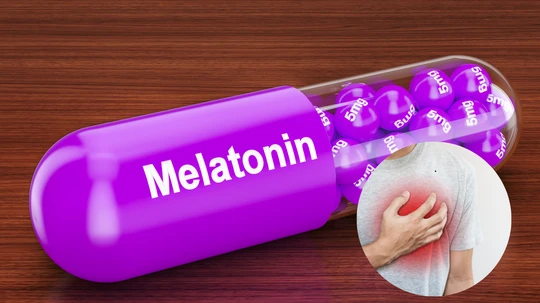What’s making headlines up recently is a new study, which yet has not been peer reviewed about how sleep medicine could have adverse affects on your cardiovascular health.
Melatonin, which is a hormone produced naturally by the body to regulate the sleep-wake cycle, is also sold as dietary supplement, typically made synthetically, has been linked to causing heart failure.
The research is from an unpublished study that is set to be presented at the American Heart Association’s scientific conference in New Orleans next week. The research notes that the sleep supplement could be linked to 90% increase in heart failure. This has drawn mixed reactions from sleep medicine experts and cardiologists. The experts have urged the public not to panic, and have called for more research into using melatonin for longer duration. Experts who have reviewed the study have noted for the limitations, which has made it challenging to determine whether and how long-term use of the sleep supplement could lead to heart failure. This happens when your heart is not pumping as well as it should.
As per Muhammad Rishi, an associate professor of clinical medicine and spokesperson for the American Academy of Sleep Medicine, “The findings are certainly provocative and warrant attention, especially given the widespread perception of melatonin as a benign, ‘natural’ sleep aid. However, the study is observational and based on electronic health record data, which limits its ability to establish causality.”
What Is The Relation Between Melatonin And Heart?
Melatonin is secreted by brain’s pineal gland in the evening, and it signals the body for sleep time. However, there are doctors who do not recommend using the supplement to treat chronic insomnia, reports the Washington Post. The reason being that the evidence for its efficacy is limited and inconsistent. The experts note that there is lack of data on its long-term usage.
In the US, melatonin does not require any prescription, however, experts have pointed out that it can only help people to treat sleep-timing problems due to jet lag or shift work, on low doses. Without being prescribed, these medicines could be procured over-the-counter, and could be used to treat chronic sleep disorders without proper guidance.
The new study that analyzed the international database of health records from five years of over 130,000 adults diagnosed with insomnia was able to recognize 65,000 participants who had been prescribed the supplement at least once for one year. The study noted that over the course of five years, around 3,000 people who took had melatonin experienced heart failure.
People who had already been diagnosed with heart failure, or were prescribed other sleep medicines, were excluded from the study.
The patients who took melatonin, were then compared with the ones who did not have melatonin, but had insomnia. The researchers found that this comparison allowed them to account for a variety of factors that could link a person’s risk for heart failure, including other health conditions.
Ekenedilichukwu Nnadi, the lead author of the new report and chief resident in internal medicine at SUNY Downstate/Kings County Primary Care in Brooklyn, said, “What stood out most was that we found any association at all.”
Nnadi said, “Melatonin is generally viewed as a very safe supplement, as something people, and even physicians, don’t usually worry much about, so we honestly didn’t expect to see a clear signal linking long-term use with higher rates of heart failure, hospitalizations and death.” However, the lead author did emphasize that the findings only showed association and not causation.
He said that the study does not prove that melatonin directly causes heart failure. “It simply shows that people with chronic insomnia who took melatonin long term were more likely to experience these outcomes. It’s an unexpected and important signal that needs to be studied further, ideally in randomized trials.”
